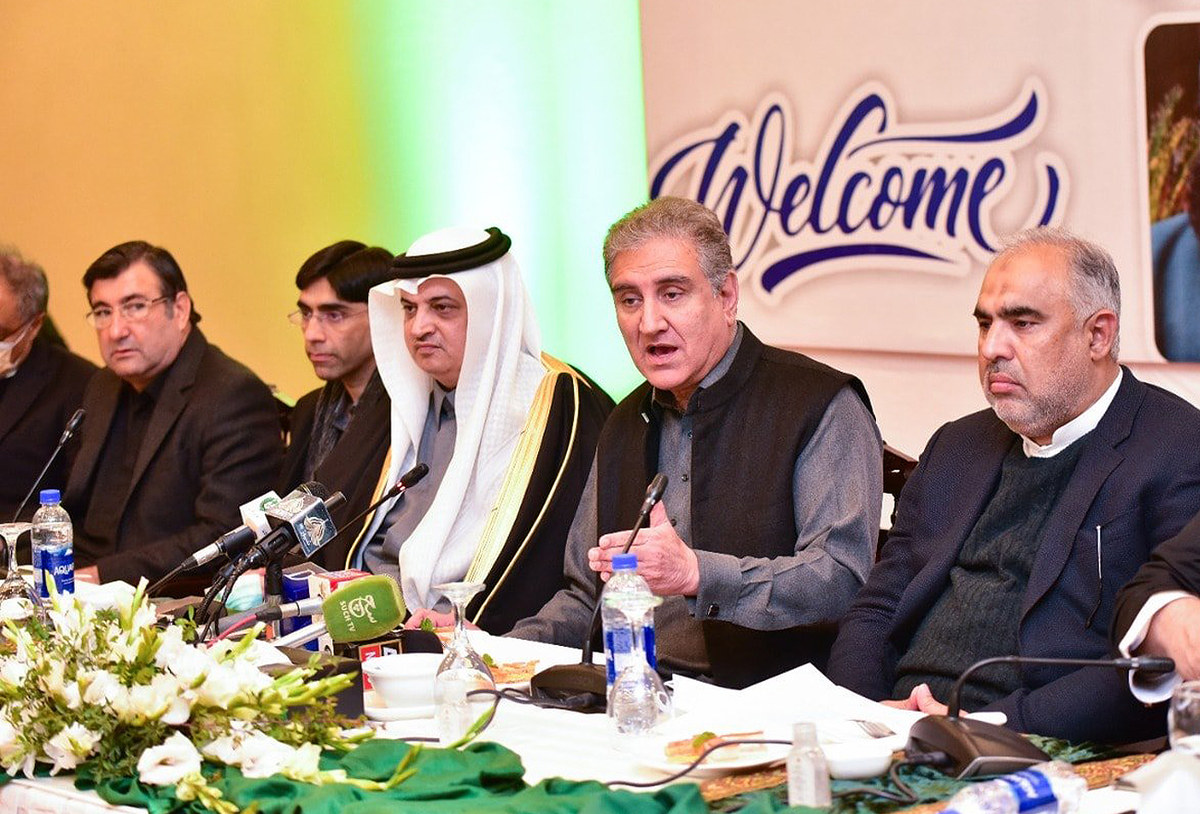ISLAMABAD: Pakistani Foreign Minister Shah Mahmood Qureshi said on Thursday the next meeting of the Organization of Islamic Cooperation (OIC) would be held on March 22 in Islamabad.
He was addressing a high tea event organized in honor of the ambassadors of Muslim countries by Special Aide to Prime Minister on Religious Harmony and Middle East, Tahir Mahmood Ashrafi. Saudi Arabia’s ambassador to Pakistan Nawaf Saeed Al-Maliki represented the OIC at the event.
“We will celebrate our 75th Pakistan Day with our brothers and the OIC Foreign Ministers Council will attend the March 23 parade as guest,” Qureshi was quoted by The News as saying.

Pakistan's foreign minister Shah Mahmood Qureshi (2R) addresses a high tea event organized in honor of the ambassadors of Muslim countries in Islamabad, Pakistan, on January 7, 2022. (APP)
On December 19, Pakistan hosted the 17th Extraordinary Session of the Organization of Islamic Corporation’s Council of Foreign Ministers. The focus of the summit was the looming economic and humanitarian crisis in Afghanistan. Around 70 delegations from OIC member states, non-members and regional and international organizations attended the summit in Islamabad. Around 20 delegations were led by foreign ministers and 10 by deputies or ministers of state.
Other than foreign ministers from Islamic countries, delegations from the European Union and the P5+1 group of the UN Security Council, including the United States, Britain, France, Russia, China and Germany, were also in attendance.
At the conclusion of the summit, OIC members states agreed to establish a Humanitarian Trust Fund to channel assistance to Afghanistan, appoint a special envoy and work together with the UN in the war-ravaged country.












